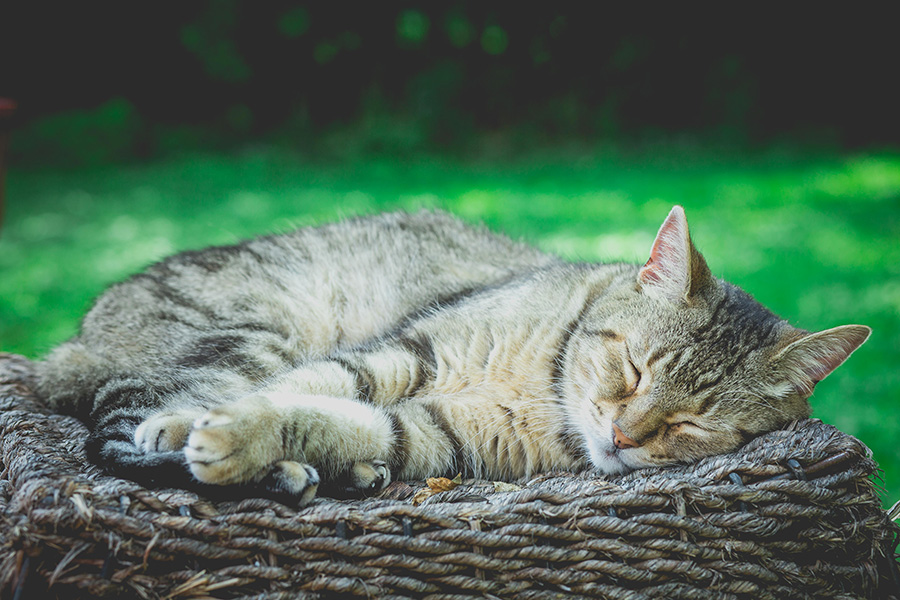How does the kidney work?
The main function of the kidney is filtration of the blood. They will still perform this task adequately even when up to 70% of function is lost. Blood is pumped through the nephrons which filter out water and small substances. As this filtrate moves through the tubules, the body will reabsorb whatever it needs, including water and electrolytes. What is left in the tubules after this is urine which is then passed out of the body.
As well as filtration the kidney is also involved in controlling blood pressure, fluid and electrolyte balance and controlling production of red blood cells.
Symptoms
Chronic renal failure is a relatively common disease in older cats; acute renal failure can affect both the young and the old, but is much less common. Cats that have developed acute or chronic renal failure will commonly show all or some of these clinical signs:
- Most commonly increased drinking and urination
- Weight loss
- Lethargy
- Vomiting and diarrhoea
- Loss of appetite
- Ulcers in the mouth
- Anaemia
Less commonly they may develop blindness, heart problems and bleeding into their intestines.
What causes it?
There are many things that can lead to chronic renal failure, and the specific cause is often difficult to indentify. Acute renal failure is generally due to either loss of blood flow to the tissue (ischaemia), sepsis or toxins.
Diagnosis
Some or all of the following tests may be advised by your vet:
Blood tests- can detect increased urea and creatinine which the kidneys should have filtered out, as well as changes in electrolytes. Blood tests may also be able to detect anaemia, which can be seen in chronic renal failure.
Blood pressure- cats with chronic renal failure usually have high systolic blood pressure.
Urine analysis- the urine in cats with renal failure is dilute because the kidneys can’t concentrate it properly anymore, and there may be increased levels of protein. Glucose and blood cells in the urine may be seen in more severe cases.
Ultrasound- can detect changes in size and composition of the kidneys seen in acute and chronic renal failure.
Treatment
Chronic renal failure is progressive and treatment is aimed at maintaining a suitable quality of life for as long as possible.
Diet is important in the management of chronic renal failure. If possible it is best to feed wet food to increase water intake (as most wet foods are approximately 70% water). The food should also be low in protein, salt and phosphorus. There are several specially formulated commercial diets available to make this easier on the owner.
Drugs that may be prescribed in treatment of chronic renal failure are phosphate binders, drugs to decrease high blood pressure and drugs to increase red blood cell production.
In acute cases treatment is more complicated and is tailored to the suspected cause and the symptoms it has produced.






